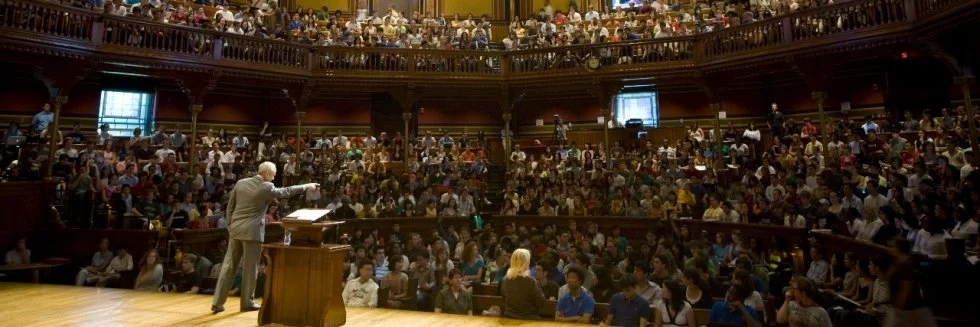Michael Sandel on the Dignity of Work
Link to the Wikipedia article “Michael Sandel”
In his book The Tyranny of Merit: What’s Become of the Common Good, Michael Sandel argues that redistribution that just hands people money isn’t enough; everyone needs to feel that they are contributing value to society. As a way to achieve this, he has some bad ideas. Two are to reduce immigration and to have less free trade. The trouble with these measures is that they hurt people in other countries who are worse off than the Americans they help. Similarly, increases in the minimum wage hurt people at the very bottom who now can’t find a job in order to help those who are one rung up on the economic ladder.
A much, much better idea is wage-matching for those near the bottom of the heap: taking whatever money a private employer is willing to pay and matching it with a corresponding amount of money from the government. I write about this in my post “Oren Cass on the Value of Work.” In one spot in The Tyranny of Merit, Michael Sandel speaks approvingly of wage subsidies, but it turns out he is mainly talking about trying to keep workers in jobs they already have. A robust wage-matching system would go far beyond that, helping create new jobs.
Philosophically, there are two justifications for a wage-matching system. The first is a principle that Michael Sandel emphasizes: it is valuable to the members of society to have a job because work gives people dignity and also helps them develop capabilities that make them better citizens when they aren’t at work. The second is that those at the bottom of the heap who get their wages matched are likely to provide many goods and services appropriate for the poor. (Those who provide high-end services probably already make a high enough wage they would not get wage-matching.) The poor don’t have enough purchasing power to fully represent the value of goods and services to them, so more work by people at the bottom of the heap making goods and services for them abundant is valuable.
Note that making a wage-matching system work smoothly requires cutting back on unnecessary occupational licensing and letting the minimum wage apply to the wage including government wage matching. The purpose of wage-matching is to make it easy for people at the bottom to find jobs as well as to give them a living wage after the wage-matching.
I would like to see arguments for a universal basic income routinely parried by arguments for a wage-matching system. A wage-matching system is better.
There is one place where those favoring a universal basic income and those favoring a wage-matching system ought to be able to agree. Being the parent of a young child is real work. Hence tax credits for young children can be seen as akin to a wage-matching system with the implicit private part of the wage being all the time and effort the parents were already willing to devote even when in poverty.
Don’t miss these other posts (some of them link-posts to outside pieces) on these alternative policies:
Isaac Sorkin: Don't Be Too Reassured by Small Short-Run Effects of the Minimum Wage (Make sure to look at both of Isaac’s papers on the minimum wage here.)
Jeff Smith: Why I Won't Sign a Petition to Raise the Minimum Wage
Daron Acemoglu and Simon Johnson's Plan to Save Our Republic
Doug Elmendorf and Greg Ip on the Value of Economics for Public Policy
Jonathan Meer and Jeremy West: Effects of the Minimum Wage on Employment Dynamics
Card-Krueger Meta-Analysis of Time-Series Minimum Wage Studies
Ryan Silverman—$15 Federal Minimum Wage: Positive Intentions, Negative Results
Mackenzie Wolfgram: Why the $15 Minimum Wage is Bad for the Poor
Do the Minimum Wage and Other Labor Market Rigidities Hamper the Assimilation of Immigrants?
Rachel Lu: Minimum Wages And Trade Barriers Can’t Manufacture Dignity
One Solution for the Federal Minimum Wage: Five Minimum Wages
